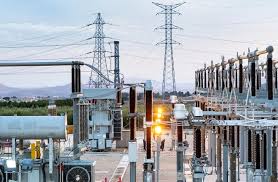Business
NIMASA, NCC Deepen Submarine `Cable Regulations

The Nigerian Maritime Administration and Safety Agency (NIMASA) and the Nigerian Communications Commission (NCC), have agreed to work closely with relevant stakeholders as NIMASA inches closer to developing a regulatory framework to provide operational guidelines for Submarine Cable and Pipeline Operators in Nigeria.
According to a statement signed by the Head, Public Relations, Mr. Edward Osagie, Monday, the officials of both organs of government reached this agreement at a pre-audit meeting on submarine cable regulation in Lagos.
The Director General of NIMASA, Dr. Bashir Jamoh, chaired the meeting, which also had the Director General of Bureau of Public Service Reforms (BPSR), Mr Dasuki Arabi, in attendance.
The NIMASA boss noted that the Agency is committed to the Ease of doing Business, while implementing international conventions which Nigeria has ratified and domesticated.
According to the statement, “Jamoh observed that with Nigeria now a destination for global communication players, the time has come to prevent unregulated underwater cable laying, which might become hazardous to shipping.
The statement read in part, “It is worthy to note that marine cable laying has been ongoing for over two decades in Nigerian waters. Our focus is to ensure safety of navigation of shipping in Nigerian waters with all these underwater cables being laid.
“NIMASA is actually developing the guidelines to regulate submarine cable operators in line with the provisions of United Nations Convention on the Law of the Sea (UNCLOS), which we have ratified and NIMASA is the Agency of Government in Nigeria responsible for its implementation.
“We do not just implement laws, we consult. Where the responsibility of an Agency stops, that is where the responsibilities of another Agency starts.
“Collaboration is a key component of ease of doing business in the best interest of the country and we will work closely with the NCC to achieve this”.
On his part, the Executive Vice Chairman of the NCC, Professor Umar Garba Danbatta, who was represented by the Director, Compliance Monitoring and Enforcement, Efosa Idehen, noted that the stakeholders’ dialogue strategy adopted by NIMASA in developing the guidelines would ensure a win-win situation.
He, however, urged NIMASA’s management to include the Ministry of Justice, a request NIMASA Director General immediately granted.
Also speaking at the meeting, the Director General of the Bureau of Public Service Reforms, Mr Dasuki Arabi, commended NIMASA and NCC for adopting effective Inter-Agency collaboration to avert a potential challenge for the country in the future.
NIMASA had notified submarine and cable operators in Nigeria of a soon to be implemented regulatory guideline for submarine cables and pipelines in Nigeria, in line with the provisions of UNCLOS.
NIMASA and the NCC agreed to identify and resolve areas of likely regulatory overlaps, ensuring a regulatory framework based on consultation to engender attainment of Nigeria’s digital economy transformation.
By: Nkpemenyie Mcdominic, Lagos
Business
Abia Takes Over Electricity Supply In 8 LGAs

Business
‘Gas Shortages, Infrastructure Deficiency, Bane Of Power Sector Growth’

Business
NUPRC Blames Out Service Trunk Lines On Vandalism … As Rivers NUJ Promises Development Journalism

-

 Sports24 hours ago
Sports24 hours agoBayern Reach Agreement Over Diaz
-

 Rivers22 hours ago
Rivers22 hours agoCustoms Intercept 16 Containers Worth Over N20bn
-

 Sports2 days ago
Sports2 days agoITTF President urges NSC to invest in medal sports
-

 News23 hours ago
News23 hours agoNigeria’s Local Content Reforms Spark Mining Boom … Set Model for Africa
-

 News20 hours ago
News20 hours agoIndustrial Gas Dealers Inaugurate New Executive
-

 News1 day ago
News1 day agoFubara Hails Wike Over UNIPORT Doctorate Award
-

 News23 hours ago
News23 hours agoBayelsa Mulls 33 LGs, Others … As House Comm’tte Holds Public Hearing
-

 Sports24 hours ago
Sports24 hours agoSchool of Legal Studies Wins CEAPOLY Sports Competition …As Science And Tech Wins Football Category

